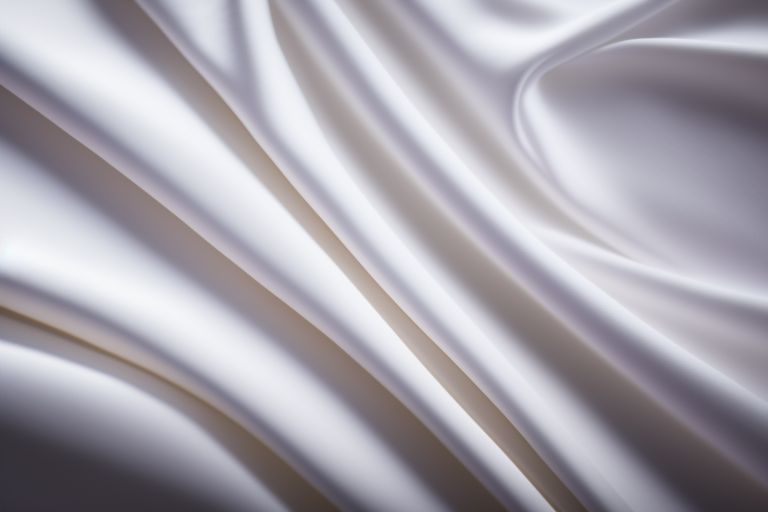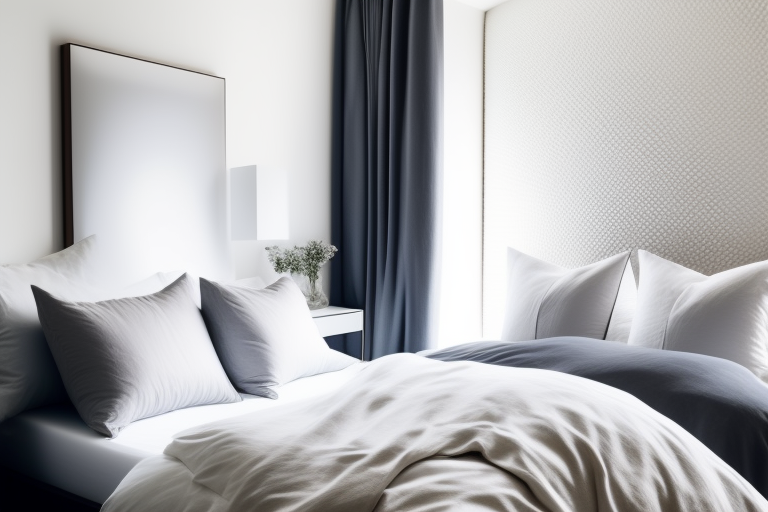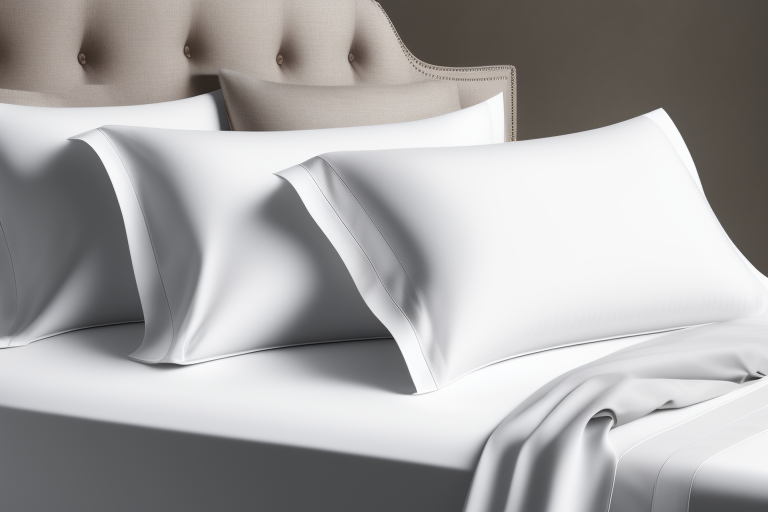Are you looking to upgrade your bedding to create a luxurious oasis for restful sleep? The right bed sheets can make all the difference when it comes to comfort and luxury. But with so many options on the market, how do you know which fabrics are worth splurging on?
This beginner’s guide will walk you through the most indulgent materials for bed sheets so you can find your perfect match. We’ll compare cotton, silk, linen, satin, bamboo, and microfiber so you can decide which one offers the combination of softness, breathability, durability, and sheer luxury you crave.
Why Your Bed Sheet Material Matters
The fabric of your bed sheets affects far more than just the look and feel. The best sheet materials can:
- Provide soft, gentle comfort against your skin
- Keep you cool and dry, or warm and cozy
- Allow your body to fully relax and recharge during sleep
- Absorb moisture and sweat during the night
- Resist wrinkles, stains, and allergens
- Hold up well to frequent washing and drying
- Give your bed a luxurious, inviting look
Consider factors like climate, skin sensitivity, typical sleep temperature, and budget as you explore the sheet fabric options below. A little insider knowledge goes a long way when investing in bedding that truly pampers you.
Decoding Thread Counts
One key factor to evaluate any bed sheet is the thread count – or the number of threads woven into one square inch of fabric.
The higher the thread count, the softer and more durable the sheet will be. For crisp luxury bed sheets, aim for:
- 400-600 thread count for cotton
- 300-500 thread count for linen
- 400-600 thread count for bamboo
Watch out for inflated thread counts above 1000, which are usually misleading and don’t improve quality. Focus on the feel and weave instead.
Cotton: The Gold Standard for Luxury Bedding
When it comes to supersoft luxury, cotton reigns supreme for bed sheets. But not all cotton is created equal. Here are the cream of the crop varieties.
Egyptian Cotton: The Pinnacle of Luxury
Often called the “king” of all cotton, Egyptian cotton comes from the long stable fibers of cotton grown exclusively in Egypt’s hot, arid climate.
Benefits:
- Ultra soft and lightweight
- Long-staple fibers get softer with washing
- Breathable, moisture-wicking, and temperature regulating
- Resists pilling and retains color well
Drawbacks:
- Expensive – costs up to $2,000 for a queen sheet set
- Wrinkles easily
Care: Gentle machine wash warm, tumble dry low.
Pima Cotton: Premium Softness
Pima cotton has extra long fibers for remarkable softness and durability. The finest Pima cotton is grown in the U.S. Southwest.
Benefits:
- Strong, soft, and silky-smooth handfeel
- Minimal pilling or tearing
- Naturally breathable and moisture-wicking
- Maintains shape well over time
Drawbacks:
- Slightly less soft than Egyptian cotton
- Shrinks more than other cottons
Care: Gentle machine wash warm, tumble dry low.
Supima Cotton: Long-Lasting Luxury
Supima cotton is a variety bred in the U.S. from a percentage of the finest Pima cotton crops. It’s exceptionally resilient and smooth.
Benefits:
- Soft, drapey handfeel even after washing
- Great breathability year-round
- Extremely durable – resists tears, stains, and pilling
- Holds color wash after wash
Drawbacks:
- More expensive than regular cotton
- Not as soft as Egyptian or Pima cotton
Care: Gentle machine wash warm, tumble dry low.
| Cotton Type | Price Range |
|---|---|
| Egyptian Cotton | $200 – $2000 |
| Pima Cotton | $100 – $600 |
| Supima Cotton | $80 – $300 |

Silk: The Epitome of Indulgence
Silk bed sheets offer unmatched luxury, from their shimmering sheen to their cloud-like softness. Silk comes in several weaves, each with their own allure:
Mulberry Silk
The finest silk of all comes from silkworms fed a strict diet of mulberry leaves. Mulberry silk boasts:
- Extremely soft, lightweight drape
- Smooth, lustrous sheen
- Temperature regulating and moisture-wicking
- Hypoallergenic and healthy for skin
Downsides:
- Very expensive (up to $1,000 for a queen set)
- Requires delicate care
Care: Hand wash or dry clean only to prevent damage.
Charmeuse Silk
The satiny side of charmeuse silk has an irresistible shimmer, while the matte back is lightly textured.
Benefits:
- Rich, flowing drape
- Unparalleled luster on satin side
- Strong and relatively affordable
Downsides:
- Wrinkles easily
- Can be less breathable
Care: Dry clean or hand wash gently in cold water.
Habotai Silk
Habotai silk has a lightweight, papery feel. It’s transparent, cool, and drapes fluidly.
Benefits:
- Light and airy for warm climates
- Very breathable and thermoregulating
- Affordable and easy to launder
Downsides:
- Wrinkles easily
- Can be prone to snags and tears
Care: Machine wash cold, gentle cycle.
Linen: The Height of Cool Luxury
Linen bed sheets offer unmatched airflow and breathability, making them ideal for hot sleepers.
Benefits:
- Extremely breathable and moisture-wicking
- Softer, lighter, and more supple over time
- Naturally antimicrobial and hypoallergenic
- Gets softer with washing but doesn’t shrink
Drawbacks:
- Wrinkles easily without ironing
- Can be rougher and stiff at first
Care: Machine wash warm, tumble dry medium heat. Hot iron if needed.
Satin: Silky Smooth Sophistication
Satin bed sheets impart a sense of luxury with their exquisitely smooth surface and fluid drape.
Benefits:
- Incredibly soft, slick handfeel
- Lightweight and breathable
- Luxurious drape and sheen
- Resists stains, pilling, and allergens
- Affordable compared to silk
Downsides:
- Wrinkles and creases easily
- Can sleep hot for some people
- Vulnerable to snags and tears
Care: Machine wash gentle cycle, tumble dry low.
Bamboo: Eco-Friendly Indulgence
Bamboo sheets marry sustainability and indulgence. They’re naturally cooling and gloriously soft.
Benefits:
- Silky smooth, breathable texture
- Thermoregulating and moisture-wicking
- Antimicrobial and resistant to allergens
- Eco-friendly and sustainably produced
- More durable than cotton
Downsides:
- Synthetic chemical processing required
- Can shrink or pill if poor quality
Care: Machine wash warm, tumble dry low.

Microfiber: Budget-Friendly Luxury
Microfiber sheets offer an indulgent feel at wallet-friendly prices. Made from ultrafine synthetic fibers, microfiber excels at mimicking the feel of costlier natural fabrics.
Benefits:
- Ultra soft with a silky, suede-like handfeel
- Lightweight breathability and moisture wicking
- Resists stains, fading, shrinking, and wrinkles
- Durable and easy to care for
- Very budget-friendly cost
Downsides:
- Not as breathable as cotton or linen
- Can retain odors and heat
- Polyester fabric doesn’t get softer over time
Care: Machine wash warm, tumble dry medium.
| Material | Price Range |
|---|---|
| Egyptian Cotton | $200 – $2000 |
| Silk | $300 – $1000 |
| Pima Cotton | $100 – $600 |
| Linen | $80 – $500 |
| Satin | $50 – $300 |
| Bamboo | $80 – $250 |
| Microfiber | $20 – $100 |
Find Your Luxury Bed Sheet Sweet Spot
Now that you know the benefits of each indulgent sheet fabric, it’s easier to narrow down your perfect match. Keep these tips in mind:
- If you love silky smoothness, splurge for silk or satin.
- For unbelievable softness and breathability, go for Pima, Supima, or Egyptian cotton.
- If temperature regulation is important, choose linen or bamboo sheets.
- For durability and easy care, try Supima cotton or microfiber.
- Compare thread count, weave tightness, and overall quality. The same material can vary widely between brands.
- Don’t overlook bed sheet color and pattern options for added luxury.
- Be prepared to invest more for the highest quality materials like Egyptian cotton and mulberry silk.
At the end of the day, the “best” bed sheet fabric comes down to your personal sleep preferences and budget. With this guide as your cheat sheet, you can shop with confidence for luxury bedding that makes your nights a dream.
Frequently Asked Questions
What thread count is best for luxury bed sheets?
For the softest, most durable luxury bed sheets, look for a thread count between 400-600. Egyptian cotton sheets, for example, are ideal with a 400-600 thread count. Be wary of inflated 1000+ thread counts, which are usually misleading. Focus more on the weave tightness and overall quality of the fabric.
How often should I wash luxury bed sheets?
To maximize the longevity of silk, satin, linen, and high-end cotton sheets, wash them every 2-3 weeks. Wash sheets made of bamboo or microfiber every 1-2 weeks. Use a gentle cycle and mild detergent. For silk, only do a gentle hand wash or dry clean. Follow specific care instructions for your sheets.
What are the softest bed sheet materials?
The softest and most luxurious bed sheet fabrics are Egyptian and Pima cotton, silk, bamboo, high-end linen and sateen cotton. Look for high thread counts, fine weaves like percale or sateen, and quality name brands known for exceptional softness. Supima cotton and microfiber can also offer a very soft feel at an affordable price point.
Should I get cooling or warm bed sheets?
It depends on if you sleep hot or cold. The most breathable, cooling bed sheets are linen, cotton, bamboo, and silk. For warmth, look for flannel cotton or cashmere sheets. You can also find temperature regulating options designed with special materials and weaves to keep you comfy all night.
How much should I pay for luxury sheets?
Expect to pay $200 – $2000 for ultra high-end Egyptian cotton and silk sheets. Pima cotton, linen, and bamboo cost $80 – $600. More affordable Supima cotton, sateen, and microfiber options range from $50 – $300. Shop sales and consider going with a higher thread count for the material if your budget is tight.








